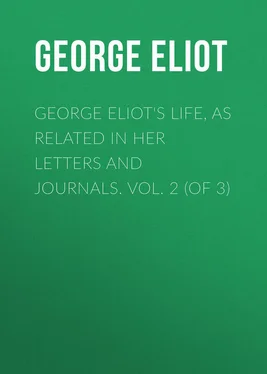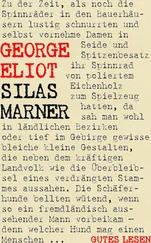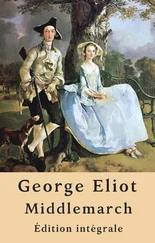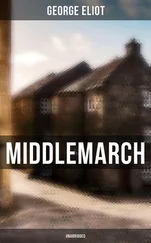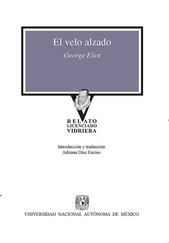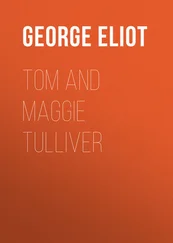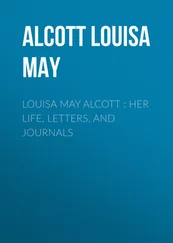George Eliot - George Eliot's Life, as Related in Her Letters and Journals. Vol. 2 (of 3)
Здесь есть возможность читать онлайн «George Eliot - George Eliot's Life, as Related in Her Letters and Journals. Vol. 2 (of 3)» — ознакомительный отрывок электронной книги совершенно бесплатно, а после прочтения отрывка купить полную версию. В некоторых случаях можно слушать аудио, скачать через торрент в формате fb2 и присутствует краткое содержание. Издательство: Иностранный паблик, Жанр: literature_19, foreign_antique, foreign_prose, на английском языке. Описание произведения, (предисловие) а так же отзывы посетителей доступны на портале библиотеки ЛибКат.
- Название:George Eliot's Life, as Related in Her Letters and Journals. Vol. 2 (of 3)
- Автор:
- Издательство:Иностранный паблик
- Жанр:
- Год:неизвестен
- ISBN:нет данных
- Рейтинг книги:3 / 5. Голосов: 1
-
Избранное:Добавить в избранное
- Отзывы:
-
Ваша оценка:
- 60
- 1
- 2
- 3
- 4
- 5
George Eliot's Life, as Related in Her Letters and Journals. Vol. 2 (of 3): краткое содержание, описание и аннотация
Предлагаем к чтению аннотацию, описание, краткое содержание или предисловие (зависит от того, что написал сам автор книги «George Eliot's Life, as Related in Her Letters and Journals. Vol. 2 (of 3)»). Если вы не нашли необходимую информацию о книге — напишите в комментариях, мы постараемся отыскать её.
George Eliot's Life, as Related in Her Letters and Journals. Vol. 2 (of 3) — читать онлайн ознакомительный отрывок
Ниже представлен текст книги, разбитый по страницам. Система сохранения места последней прочитанной страницы, позволяет с удобством читать онлайн бесплатно книгу «George Eliot's Life, as Related in Her Letters and Journals. Vol. 2 (of 3)», без необходимости каждый раз заново искать на чём Вы остановились. Поставьте закладку, и сможете в любой момент перейти на страницу, на которой закончили чтение.
Интервал:
Закладка:
Feb. 26. – We went into town for the sake of seeing Mr. and Mrs. Call, and having our photographs taken by Mayall.
Feb. 28. – Mr. John Blackwood called on us, having come to London for a few days only. He talked a good deal about the "Clerical Scenes" and George Eliot, and at last asked, "Well, am I to see George Eliot this time?" G. said, "Do you wish to see him?" "As he likes – I wish it to be quite spontaneous." I left the room, and G. following me a moment, I told him he might reveal me. Blackwood was kind, came back when he found he was too late for the train, and said he would come to Richmond again. He came on the following Friday and chatted very pleasantly – told us that Thackeray spoke highly of the "Scenes," and said they were not written by a woman . Mrs. Blackwood is sure they are not written by a woman. Mrs. Oliphant, the novelist, too, is confident on the same side. I gave Blackwood the MS. of my new novel, to the end of the second scene in the wood. He opened it, read the first page, and smiling, said, "This will do." We walked with him to Kew, and had a good deal of talk. Found, among other things, that he had lived two years in Italy when he was a youth, and that he admires Miss Austen.
Since I wrote these last notes several encouraging fragments of news about the "Scenes" have come to my ears – especially that Mrs. Owen Jones and her husband – two very different people – are equally enthusiastic about the book. But both have detected the woman.
Letter to Miss Sara Hennell, 2d March, 1858.
Perhaps we may go to Dresden, perhaps not: we leave room for the imprévu , which Louis Blanc found so sadly wanting in Mr. Morgan's millennial village. You are among the exceptional people who say pleasant things to their friends, and don't feel a too exclusive satisfaction in their misfortunes. We like to hear of your interest in Mr. Lewes's books – at least, I am very voracious of such details. I keep the pretty letters that are written to him; and we have had some really important ones from the scientific big-wigs about the "Sea-side Studies." The reception of the book in that quarter has been quite beyond our expectations. Eight hundred copies were sold at once. There is a great deal of close hard work in the book, and every one who knows what scientific work is necessarily perceives this; happily many have been generous enough to express their recognition in a hearty way.
I enter so deeply into everything you say about your mother. To me that old, old popular truism, "We can never have but one mother," has worlds of meaning in it, and I think with more sympathy of the satisfaction you feel in at last being allowed to wait on her than I should of anything else you could tell me. I wish we saw more of that sweet human piety that feels tenderly and reverently towards the aged. [ Apropos of some incapable woman's writing she adds.] There is something more piteous almost than soapless poverty in this application of feminine incapacity to literature. We spent a very pleasant couple of hours with Mr. and Mrs. Call last Friday. It was worth a journey on a cold dusty day to see two faces beaming kindness and happiness.
Letter to Miss Sara Hennell, 26th March, 1858.
I enclose a letter which will interest you. It is affecting to see how difficult a matter it often is for the men who would most profit by a book to purchase it, or even get a reading of it, while stupid Jopling of Reading or elsewhere thinks nothing of giving a guinea for a work which he will simply put on his shelves.
Letter to Charles Bray, March, 1858.
When do you bring out your new poem? I presume you are already in the sixth canto. It is true you never told me you intended to write a poem, nor have I heard any one say so who was likely to know. Nevertheless I have quite as active an imagination as you, and I don't see why I shouldn't suppose you are writing a poem as well as you suppose that I am writing a novel. Seriously, I wish you would not set rumors afloat about me. They are injurious. Several people, who seem to derive their notions from Ivy Cottage, 1 1 The Brays' new house.
have spoken to me of a supposed novel I was going to bring out. Such things are damaging to me.
Letter to Charles Bray, 31st March, 1858.
Thanks for your disclaimer. It shows me that you take a right view of the subject. There is no undertaking more fruitful of absurd mistakes than that of "guessing" at authorship; and as I have never communicated to any one so much as an intention of a literary kind, there can be none but imaginary data for such guesses. If I withhold anything from my friends which it would gratify them to know, you will believe, I hope, that I have good reasons for doing so, and I am sure those friends will understand me when I ask them to further my object – which is not a whim but a question of solid interest – by complete silence. I can't afford to indulge either in vanity or sentimentality about my work. I have only a trembling anxiety to do what is in itself worth doing, and by that honest means to win very necessary profit of a temporal kind. "There is nothing hidden that shall not be revealed" in due time. But till that time comes – till I tell you myself, "This is the work of my hand and brain" – don't believe anything on the subject. There is no one who is in the least likely to know what I can, could, should, or would write.
Journal, 1858.
April 1, 1858. – Received a letter from Blackwood containing warm praise of "Adam Bede," but wanting to know the rest of the story in outline before deciding whether it should go in the Magazine. I wrote in reply refusing to tell him the story.
On Wednesday evening, April 7th, we set off on our journey to Munich, and now we are comfortably settled in our lodgings, where we hope to remain three months at least. I sit down in my first leisure moments to write a few recollections of our journey, or rather of our twenty-four hours' stay at Nürnberg; for the rest of our journey was mere endurance of railway and steamboat in cold and sombre weather, often rainy. I ought to except our way from Frankfort to Nürnberg, which lay for some distance – until we came to Bamberg – through a beautifully varied country. Our view both of Würzburg and Bamberg, as we hastily snatched it from our railway carriage, was very striking – great old buildings, crowning heights that rise up boldly from the plain in which stand the main part of the towns. From Bamberg to Nürnberg the way lay through a wide rich plain sprinkled with towns. We had left all the hills behind us. At Bamberg we were joined in our carriage by a pleasant-looking elderly couple, who spoke to each other and looked so affectionately that we said directly, "Shall we be so when we are old?" It was very pretty to see them hold each other's gloved hands for a minute like lovers. As soon as we had settled ourselves in our inn at Nürnberg – the Baierische Hof – we went out to get a general view of the town. Happily it was not raining, though there was no sun to light up the roof and windows.
Journal, April, 1858.
How often I had thought I should like to see Nürnberg, and had pictured to myself narrow streets with dark quaint gables! The reality was not at all like my picture, but it was ten times better. No sombre coloring, except the old churches: all was bright and varied, each façade having a different color – delicate green, or buff, or pink, or lilac – every now and then set off by the neighborhood of a rich reddish brown. And the roofs always gave warmth of color with their bright red or rich purple tiles. Every house differed from its neighbor, and had a physiognomy of its own, though a beautiful family likeness ran through them all, as if the burghers of that old city were of one heart and one soul, loving the same delightful outlines, and cherishing the same daily habits of simple ease and enjoyment in their balcony-windows when the day's work was done.
Читать дальшеИнтервал:
Закладка:
Похожие книги на «George Eliot's Life, as Related in Her Letters and Journals. Vol. 2 (of 3)»
Представляем Вашему вниманию похожие книги на «George Eliot's Life, as Related in Her Letters and Journals. Vol. 2 (of 3)» списком для выбора. Мы отобрали схожую по названию и смыслу литературу в надежде предоставить читателям больше вариантов отыскать новые, интересные, ещё непрочитанные произведения.
Обсуждение, отзывы о книге «George Eliot's Life, as Related in Her Letters and Journals. Vol. 2 (of 3)» и просто собственные мнения читателей. Оставьте ваши комментарии, напишите, что Вы думаете о произведении, его смысле или главных героях. Укажите что конкретно понравилось, а что нет, и почему Вы так считаете.
